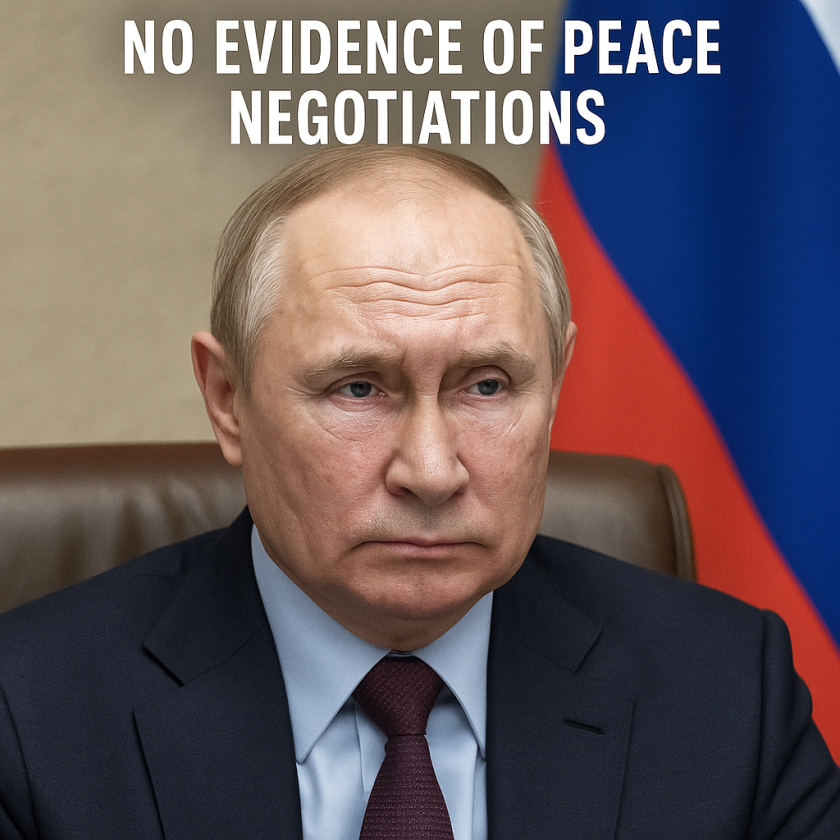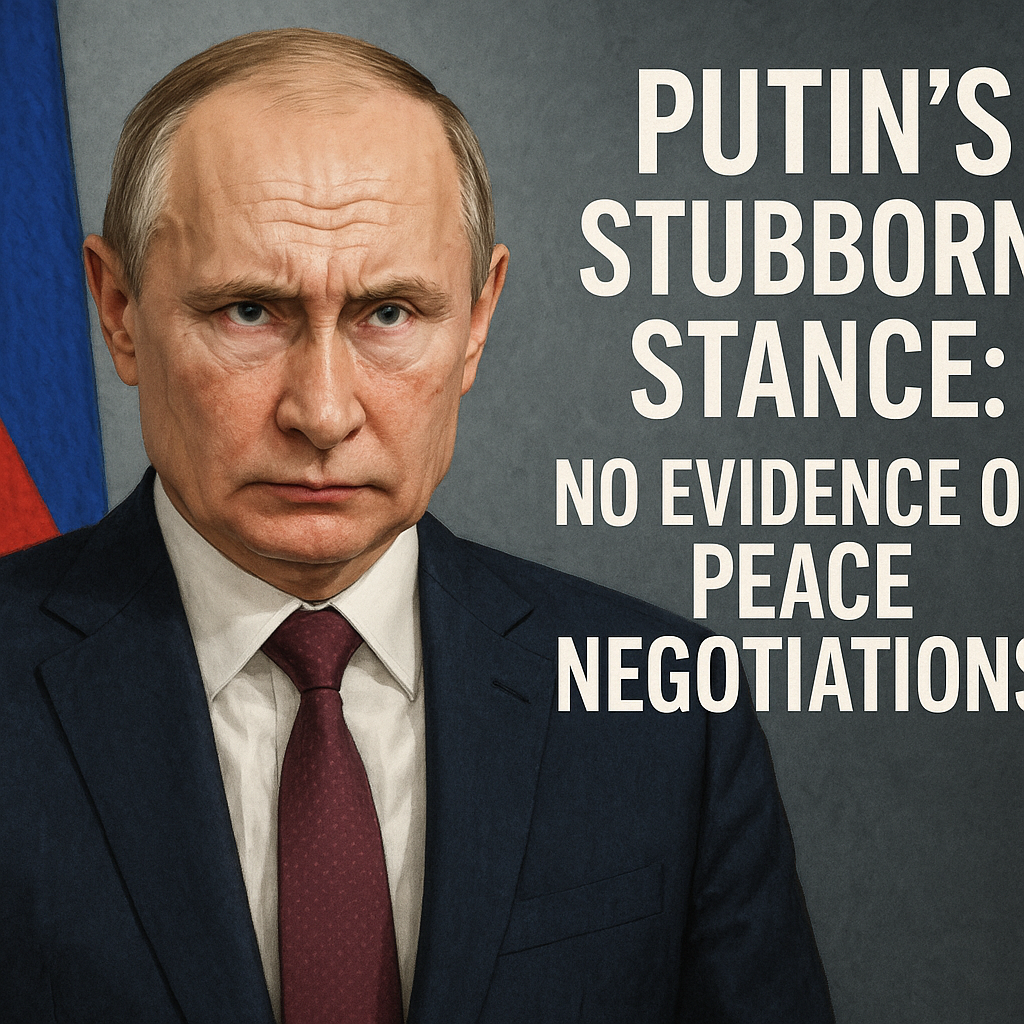Putin’s Stubborn Stance: No Evidence of Peace Negotiations
Putin’s Stubborn Stance: No Evidence of Peace Negotiations
Putin’s stubborn stance on Ukraine continues to invite scrutiny and debate, especially in light of recent intelligence assessments suggesting that there are no indications he is interested in pursuing peace negotiations. This ongoing conflict, now stretching into its second year, remains a focal point of international relations, with various stakeholders examining the implications of Russia’s actions.
The Intelligence Landscape

According to a report by MI6, the UK’s foreign intelligence service, there is currently no evidence that Vladimir Putin is considering any form of peace negotiation with Ukraine. This assessment raises critical questions about the likelihood of conflict resolution in the near future.
Diverging Viewpoints on Diplomatic Efforts
Several media sources highlight a range of perspectives regarding the prospects for peace in Ukraine, often contrasting with the MI6 report. Al Jazeera emphasizes that, while Putin has publicly stated his commitment to the conflict, there are factions within Russia and abroad advocating for diplomatic solutions. These dissenting voices suggest that the continuation of the war may not be in the interests of Russia, given the economic toll and international sanctions.
On the other hand, RT, a state-funded news organization in Russia, frames Putin’s unwillingness to negotiate as a strategic maneuver, emphasizing the narrative of Western aggression as a justification for Russia’s military actions. This viewpoint suggests that any calls for negotiations might be viewed as an attempt to undermine Russia’s position rather than a genuine offer for peace.
The divergence in perspectives reveals a complex web of motives driving the conflict. While intelligence assessments suggest a firm refusal from the Kremlin to engage in dialogue, other narratives emphasize the possibility of internal pressures for a change in course.
Domestic and International Pressures
Economic Implications
The economic fallout from the invasion of Ukraine has been significant for Russia, leading to inflation and reduced access to international markets. Analysts suggest that these factors could eventually push the Kremlin to consider negotiations, despite the current outward stance. Economists and political analysts are divided; some argue that the mounting financial strain may force a reassessment of strategies.
Global Reactions
International reactions vary significantly, with Western nations largely unified in their support for Ukraine. Much of this stems from concerns about continued Russian aggression impacting not just Ukraine but also the stability of Europe. Countries such as the United States and members of the European Union view continued support for Ukraine as essential to regional security. This collective stance makes it increasingly challenging for Russia to engage in meaningful negotiations without significant concessions.
Voices from Within Russia
Interestingly, voices within Russia are beginning to emerge, calling for a re-examination of the war’s objectives. Public sentiment has shown signs of fatigue as the conflict drags on, which could potentially influence political discourse. However, whether this domestic sentiment has the power to affect Putin’s decision-making remains uncertain. The Russian leader is widely regarded as someone who prioritizes control above public opinion, making significant changes in policy potentially risky for him.
Looking Ahead: What Lies in the Balance?
The situation remains fluid and uncertain, with various factors at play. As the conflict progresses, the lack of evidence pointing toward peace negotiations may reflect both Putin’s strategy and broader geopolitical complexities. The intelligence community’s narrative of a hardline Russian leadership contrasts starkly with those advocating for dialogue, underscoring the multifaceted nature of the conflict.
Ultimately, the quest for peace in Ukraine will depend on a combination of strategic military assessments, economic pressures, and the emergence of influential voices advocating for negotiation within and outside Russia. As new developments unfold, the international community will continue to watch closely, hoping for a resolution that could bring an end to the suffering and instability wrought by this protracted conflict.
In conclusion, while evidence currently suggests that President Putin is not pursuing peace negotiations, the dynamics surrounding the conflict involve multiple stakeholders whose interests and pressures may evolve in response to changing circumstances. The future, though uncertain, remains a pivotal juncture for Ukraine and the geopolitical landscape of Europe.




































